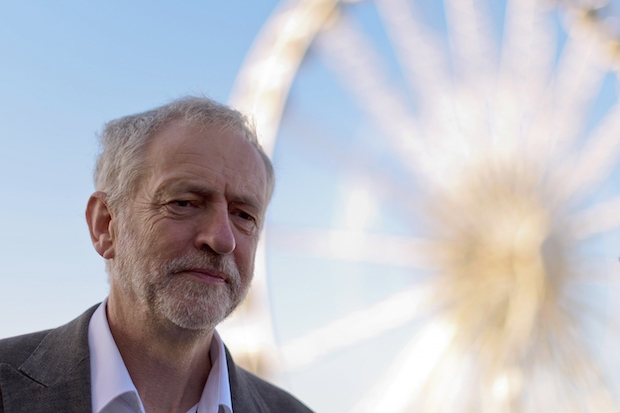Jeremy Corbyn had a very good interview on Marr this morning. For anyone in the wider, non-Westminster world tuning in (and they do), the new Labour leader would have come across as reasonable, mild, and normal. When Marr pressed him on certain issues, Corbyn looked as though he was an academic having a good debate in his study over a glass of port (or marrow juice, maybe), rather than a politician panicking as he tried to remember the next line that he’d memorised from the spin doctor’s briefing. He even managed to get some quips about internal Labour democracy in, joking that the programme should film ‘compositing in action’.
What was particularly effective about this interview, far more so even than the way Corbyn looked normal and pleasant, was the way he managed to neutralise each issue on which he is considered ‘extreme’. This was partly through sounding mild and reasonable throughout – and one point he said ‘I don’t do irritation’ – but also through missing out certain statements and points that only those who are truly well briefed on an issue would have noticed, and by saying an issue that he has made pronouncements on in the past is something for those involved/his wider party to decide.
So Corbyn said he wanted to cut taxes for the poor and didn’t want to put the top tax rate above 50p. But he didn’t mention the 40p rate. And he said a united Ireland was ‘for the Irish people to decide’ (something James points out won’t please those who think it might be for those in Northern Ireland, not Ireland, to decide).
On Trident and abolishing the monarchy, Corbyn spoke of the importance of his party deciding issues – and mocked the idea that two different opinions in one party was always a bad thing – and said that though he was opposed to a hereditary principle in power, he accepted that most people were in favour of the monarchy, and that was fine.
Corbyn wants to do his ‘persuasive best’ to bring colleagues round to his view on Trident, but he was keen to appear relaxed about the idea that they might continue to disagree with him. In many senses this is refreshing, but it does beg the question of what sort of role he really sees for himself as Labour leader if he can’t get many of the ideas he has spoken passionately about for decades into official party policy. Is the new-look Labour leadership really more of a chairperson who suggests things but isn’t particularly bothered if everyone else in the room shoots them down? It’s certainly a new way of doing politics.







Comments